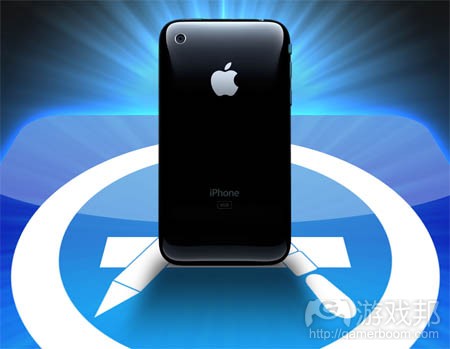应用经济形态是否会扼杀在线发行商?
游戏邦注:本文作者是Yaron Galai,他是Outbrain的CEO和联合创始人,Outbrain是基于网页的推荐引擎。
几个月前,我曾发了条微博:“若我是个发行商,我会:1)将应用从App Store移除;2)掏出所有资金购买苹果股票。”第2条建议相当牢靠,即便可能有些不切实际,苹果股票的运作情况无人能及。但第1条针对发行商的建议似乎回响不大,很多发行商依然继续推出iPhone和iPad应用。换而言之,我觉得这个趋势是个短期现象,最终会发生改变,原因如下:
分裂的应用世界会耗尽开发资源
网络的美丽之处在于其通过标准化模式访问机器、操作系统和浏览器信息,无需通过重写代码适应Mac、PC和Unix格式。只需在互联网发布1次,内容就能够被所有用户访问(游戏邦注:这和访问过程使用的配置没有关系)。最近各应用商店开始重新分化原本已获得重组的市场。分裂的开发市场开始向支持多元应用的群体提高费用和阻碍。这对科技公司而言也许不是什么重负,但对发行商而言,支持各种应用是个棘手问题,是个完全多余的重负,这就引出下个要点。
对多数网站而言,应用投资回报率存在不确定性
原生应用是开发商制作网页所无法实现的功能的有效方式(或者这也许需要在网页中使用Flash技术)。游戏就是个典型例子。对产品是语言和图像的发行商而言,他们不清楚应用能够创造什么优质网页所无法提供的额外功能。当然,我们可以批判某些非原生内容,但问题是制作这些内容是由于存在可能性,还是由于它们其实有其作用。
我觉得许多有益的手机阅读体验都出现在Instapaper,其通过合理排版清楚呈现文本(游戏邦注:这些特性能够在优质手机网站上实现)。唯一的两个例外情况是:1)视频和2)离线阅读。二者的缺口因HTML5而消失,很快即便这些“应用理由”也无法变成开发专属手机应用的正当理由。
你无法连接,或者至少无法轻松链接至应用
在应用而非手机网站发行内容,需清楚的是其链接价值大大降低。应用属于单机程序,不是开放网络的组成部分,因此链接至其他网络效果不佳。你无法连接至其他应用内容。链接至其他应用虽然有可能,但需要将用户转移至其他应用(游戏邦注:也叫做手机浏览器),破坏其中的用户体验。
成为他人平台的“俘虏”
最后也是最重要的一点是所发行平台的所有权。没有人占有互联网,因此没有公司能够设定新规则、价位、审查制度或其他意外。
发行手机应用时,发行商从技术上变成他人平台(苹果或者谷歌)的节点,受其规则和奇怪政策约束。苹果分成发行商订阅收益30%就是个典型例子。《金融时报》就发行商选择完全撤离App Store,专注自己的手机网页应用进行大肆报道。瞄准他人平台开发应用会创造新营销渠道幻觉,但其实这等于被他人的商业模式绑架。
总而言之,手机应用可以是个正当营销渠道,发行商入驻各种应用商店意义重大。但若你去掉应用其他层面的含义,将其视作营销渠道,那么结论就是发行商的应用从根本上说就是大家手机屏幕的标签。就是这样——提醒大家消费内容,提供快速链接。
我建议在“我们须享有某款iPhone/iPad/Android/WebOS/Win7应用”风潮消退后,发行商应该坚持这些原则:
* 通过有限开发资源创造网站的单个手机网页版本。
* 向在手机网站发行网页浏览器的应用所入驻的商店提交书签版本。
* 运用瞄准手机平台的服务(游戏邦注:这里指向读者提供优质阅读体验,针对手机网页的服务)。
* 改变手机领域的营收策略,选择适合手机内容消费的付费渠道。
手机平台迫使发行商进行快速调适和快速发行内容。在“孤注一掷”的环境中,应用的狂轰滥炸最终会压垮发行商。发行商没有理由分散其开发资源,支持破坏链接的跨平台应用,遵守他人策略而放弃自己的原则。(本文为游戏邦/gamerboom.com编译,如需转载请联系:游戏邦)
Is the app economy killing online publishers?
By Yaron Galai
A few months ago I tweeted this: “If I were a publisher I would either: a) pull my app from the App Store or b) invest all available cash in Apple stock.” The latter piece of advice was probably pretty solid, if not very practical — Apple’s stock has been performing like no other in recent history.
But my former piece of advice for publishers – to pull their apps from the App Store – doesn’t seem to have resonated much, as many publishers keep pushing out their respective iPhone and iPad apps. That said, I’m betting this trend is a short-term fad that will eventually reverse, and here’s why:
The fragmented app world is a drain on development resources
The beauty of the Web is that it standardized access to information across machines, operating systems, and browsers. No more rewriting code to be Mac-, PC- and Unix-compatible, etc. Publish once on the Web, and the information will be accessible by all of humanity regardless of any configuration they might use to access it. Recently, the various app stores have again started fragmenting a world that had largely become defragmented. A fragmented dev world imposes costs and headaches on those that choose to support the various apps. That might not be a huge tax on tech companies, per se, but for publishers, supporting multiple apps will become a headache and a totally unnecessary tax, which leads me to my next point.
For most websites, the ROI of an app is unclear
A native app is a great way for developers to create functionality that’s not possible with a web page (or that might otherwise require the use of Flash in a web page). Games are a perfect example of this. For a publisher whose product is words and pictures, it is unclear what additional functionality an app can provide that a well-designed Web page cannot. Sure, it’s always possible to slap some artificial stuff on an app (and The Daily is a great example of things that can be done on a publisher app), but the question is whether those things are done because it’s possible to do them, or because they are actually useful.
I’d argue that the most useful mobile reading experience is on Instapaper, which is a clean presentation of the text with proper typography — attributes that are all perfectly achievable in a well-designed mobile website. The only two exceptions here might be: a) video and b) offline reading. The gap on both is closing with HTML5, and soon even these “app excuses” won’t be a valid reason for justifying development of proprietary mobile apps.
You can’t link — or, at least, link easily — to apps
When deciding to publish content in an app rather than a mobile website, it’s important to understand that the value of links, as we know them on the Web, is greatly diminished. Because an app is a standalone program, not a part of the open Web, linking to other pages is clunky at best. You cannot link to content on other apps. And links to websites, while possible, require switching the user to another application (AKA a mobile browser) and disrupting the user experience between articles.
You’re being held hostage on someone else’s platform
Lastly, and possibly most importantly, is the ownership of the platform on which you publish. No one owns the Web, and therefore no company can impose new rules, pricing, censorship or other surprises along the way (FCC regulation aside, of course).
When developing a mobile app, a publisher technically becomes a node within someone else’s platform — namely Apple or Google — and is bound by their rules and whims. Apple’s decision to impose a 30 percent tax on all publisher subscriptions done within apps is just one example of this. The Financial Times created a lot of buzz with their decision to fully withdraw from the App Store and go all-in with their mobile Web app. Developing an app for someone else’s platform might give the illusion of a new marketing channel, but in reality it means becoming a node in someone else’s business model.
All that said, a mobile app can be a decent marketing channel, and there is value for publishers in having a presence inside the various app stores. But if you peel away all the other layers of what an app can be and focus on it exclusively as a marketing channel, then the conclusion is that an app for publishers is basically a bookmark on people’s phone screens. That’s it — a reminder to consume the publisher’s content, and a quick link to do so.
I urge (and predict!) that publishers stick to these principles after the “we need to have an iPhone/iPad/Android/WebOS/Win7/etc. app” hype passes:
* Use limited dev resources to build a single, great mobile Web version of their website.
* Submit a bookmark version to all the app stores of an app that launches the Web browser with their mobile Web site.
* Use services specific to mobile, which provide readers a superior browsing experience, tailored for the mobile Web.
* Alter monetization strategies for the mobile environment, opting for revenue generators that are perfected for mobile consumption.
Mobile is putting pressure on publishers to quickly adapt and successfully deliver. In a “sink or swim” environment, the hype of apps is ultimately going to weigh publishers down. There is no real reason for publishers to spread their dev resources thin, supporting multiple proprietary apps that break links and really serve someone else’s strategy more than their own.
Yaron Galai is the CEO and co-founder of Outbrain, a web-based recommendation engine. (Source:gigaom)








































 闽公网安备35020302001549号
闽公网安备35020302001549号